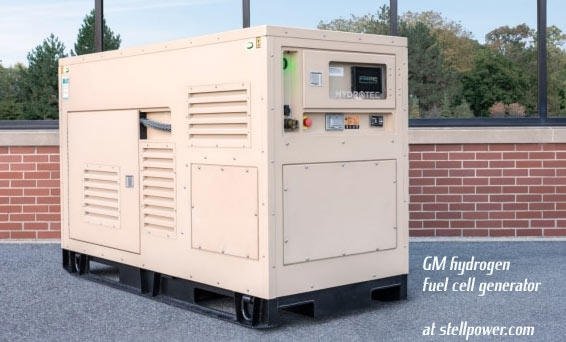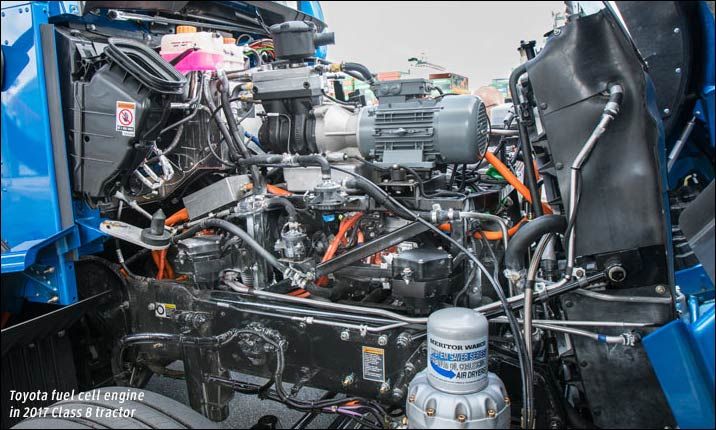Battery-electric cars (BEVs) are in the works for most segments, but would they work for heavy duty trucks? Ram seems to think not; while a BEV Ram 1500 is coming, to join Rivian’s, Ford’s, and Chevrolet’s light-duty battery-electric pickups (in order of production), their EV Day presentation pointed to a different path for the Ram 2500 and 3500.

This is not a unique path; Toyota, which sells the second-generation hydrogen-powered Mirai in California, already announced its development of “stackable” hydrogen fuel cell systems for everything from pickups to cargo ships (a heavy duty truck system is shown below). General Motors is producing a hydrogen generator for military and commercial applications, and is likely to have hydrogen trucks, too. And, of course, Mercedes was working on hydrogen power years ago, as an alternative to hybrids and BEVs.

Much of the hydrogen development seems to be taking place in Europe, which is transitioning from fossil fuel transportation long before North America. On June 27, 2022, former Naval Group executive Jean-Michel Billig will become Stellantis’ chief technology officer for hydrogen fuel cell vehicle (HEV) development. Opel’s brand chief, Uwe Hochgeschurtz, will also be responsible for piloting Stellantis HEVs.
Billig has worked in the aerospace industry, starting at Aerospatiale and moving on to Airbus and then Eurocopter. He entered the auto world in Renault as EVP of Engineering, Quality, and IS; after just three years he moved on to Zodiac Aerospace, joining Naval Group in 2017.
Stellantis makes a hydrogen fuel cell vehicle in the light commercial segment, and has been developing the ability to make vehicles which can be produced with either batteries or hydrogen fuel cells.
While most hydrogen today comes from fossil fuels, it burns cleanly in the vehicle itself, which is handy for congested areas. It may be more efficient than using fossil fuels in the vehicle. More to the point, cleaner ways to isolate hydrogen are being developed quickly, mostly using wind turbine and solar “downtime” (periods when clean energy exceeds demand).
Discover more from Stellpower - that Mopar news site
Subscribe to get the latest posts sent to your email.
